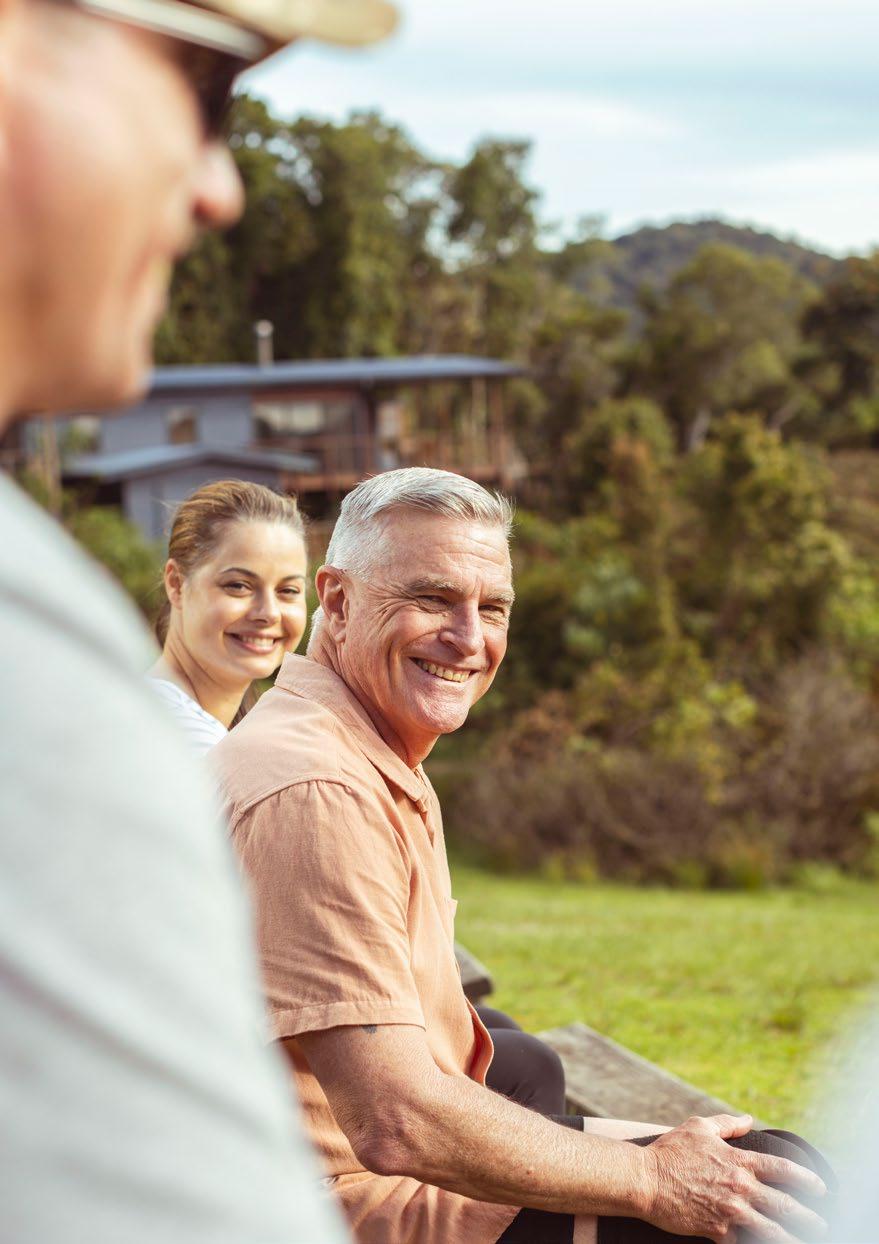
HELPING VETERANS AND FAMILIES TO RECONNECT AND RECOVER. Supporting mental health through social connection. RECOGNISING WHEN YOU’RE STRUGGLING AND WAYS TO FIND SUPPORT.


HELPING VETERANS AND FAMILIES TO RECONNECT AND RECOVER. Supporting mental health through social connection. RECOGNISING WHEN YOU’RE STRUGGLING AND WAYS TO FIND SUPPORT.
Whether it’s finding mateship with like-minded people, learning a new skill, getting back into exercise, or focusing on mental health, Mates4Mates is here to connect veterans and families with services to help them move forward.
Throughout the year, a range of Skills for Recovery Programs have been facilitated in Queensland, Tasmania and the Northern Territory, as well as online. These group-based clinical programs have provided veterans and families with a safe environment to learn strategies to help improve their health and wellbeing. For more information on Skills for Recovery Programs running between now and the end of the year, get in touch with us via programs@mates4mates.org.
If you’re visiting one of our Queensland centres, our experienced exercise physiologists and physiotherapists are available to support you with your health and movement goals. Services are designed to help you recover from physical injuries and improve your wellbeing, and there’s a range of group exercise classes available.
Plus, our mental health clinicians are available, both in centre and online via telehealth, to help you manage your mental health and wellbeing and improve your quality of life.
We look forward to welcoming you to a centre, an activity or a program soon. To find out more, visit mates4mates.org.



Deirdre is a Mate living on the Sunshine Coast who has been regularly accessing Mates4Mates services for two years.
What’s your favourite social connection activity?
“I think they’re all lovely, but I especially enjoy anything that involves exercise and getting outdoors, or activities based around being crafty.”
Why do you enjoy being a Mate?
“For me, it’s the camaraderie. You know when you go into a Mates4Mates space that you can talk to anyone. It’s safe to just enjoy the company of like-minded people.” What impact has Mates4Mates had on you?
“Being around other service people helps you to feel that you do belong. Getting involved in Mates4Mates has been wonderful and by being in the community, I hope I can help other people who are looking for their place too.”

Written by Ann-Marie Trinh, Mates4Mates Psychologist.
Transitioning from the Defence Force to civilian life can have a significant impact on a veteran’s mental health and wellbeing. Ensuring that veterans receive comprehensive support during this transition period is critical to maintaining balanced mental health.
Leaving the structured, purpose-driven environment of military service can often result in a loss of identity, routine and social connection, leading to feelings of isolation, anxiety and depression.
The stigma around seeking help and a limited awareness of available support services can create further barriers, working against veterans trying to transition to civilian life.
Some signs that a veteran may be struggling with the transition to civilian life can include changes in mood, behaviour or daily functioning. This might look like:
• Withdrawing from family, friends or social plans.
• Losing interest in things they once enjoyed.
• Difficulty sleeping.
• Frequent irritability, angry outbursts or persistent sadness.
• Struggling to find or maintain employment.
• Trouble concentrating.
• Expressing feelings of hopelessness, worthlessness or being a burden.
• Substance misuse.
• In more severe cases, they may talk about death, express suicidal thoughts, or show signs of preparing for suicide (e.g., giving away possessions or saying goodbye).
When transitioning from the Defence Force to civilian life, it is important to take immediate and compassionate steps to ensure that you are helping to balance your health and wellbeing.
A great place to start is by seeking help and talking to someone you trust such as a family member, friend or former colleague.
Social connection can play a vital role in supporting a veteran who is struggling with the transition into civilian life. Maintaining social connection can help to counteract feelings of isolation, loss of identity, and disconnection that often accompany this major life change.
These connections create an opportunity to share experience, reduce stigma around seeking help and remind veterans that they are not alone.
It is also critical to have professional health support when going through a major change. Take time to contact a mental health professional or your GP to discuss your needs and support services that could be useful.
Through Mates4Mates clinical services, veterans and family members can access a team of psychologists, social workers, counsellors, exercise physiologists and physiotherapists to support their mental and physical health and wellbeing.
Mates4Mates also offers a range of social connection activities, bringing together local Defence communities and providing you with the opportunity to try something new in a safe and supportive environment.
For more information about Mates4Mates services and how we can help to support you, reach out to us on 1300 4 MATES (62 837) for a confidential chat.

For those who live a life of service, commitment and discipline, rest is not just a luxury - it is essential. At Sleepy’s, we are dedicated to helping you reclaim quality rest, with expert guidance and purpose-built sleep solutions. Our team of trained Bed Fit Specialists are here to support you in finding the right mattress, one that suits your lifestyle, body and comfort preferences. We take the time to understand your unique needs and recommend sleep solutions that offer real support where it is needed most. Visit your local Sleepy’s store or contact us to learn how we can support your next chapter, starting with better sleep.


